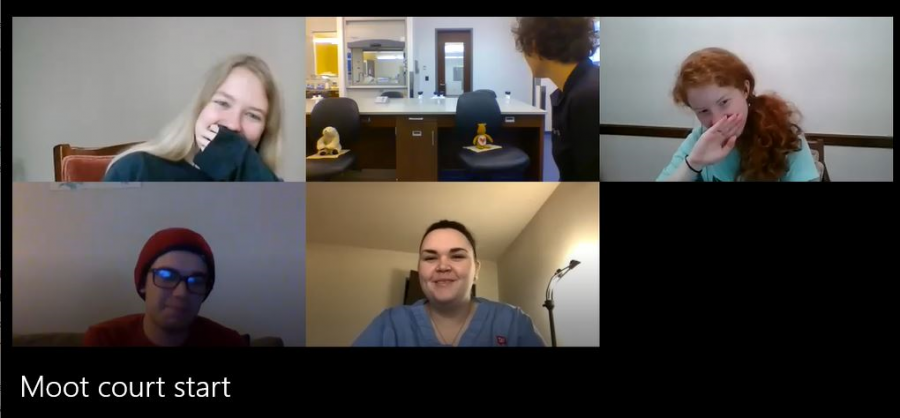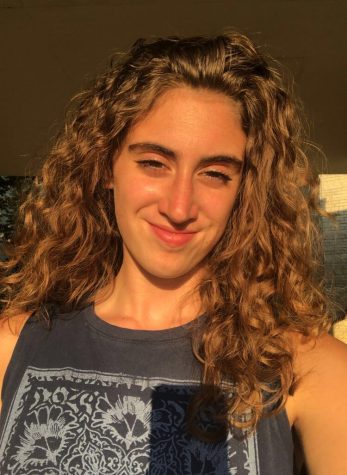Director of forensic chemistry receives excellence award
May 21, 2020
This 2020 school year, seniors majoring in science or math selected an outstanding full-time faculty member to receive the “Award for Excellence in Teaching Science.”
Assistant Professor and Director of Forensic Chemical Science Holly O’Neill received the award and accepted a cash prize that was funded by alumni sponsors.
Following the announcement at the end of the spring semester, O’Neill described her journey and the methods she uses to ensure an outstanding education for students.
“The seniors vote in the sciences and elect somebody as the best teacher for that year. It was me this year,” said O’Neill. “To me that is the best award, when the students nominate you. That shows me that I am doing something right. I feel appreciated and it keeps me going.”
O’Neill believes that her passion is teaching and understanding students’ fear of chemistry.
Students become intimidated by the mathematical and technical aspects of science. This can shut their brains off – hindering their learning experience, according to O’Neill.
“I help connect people with their ability to learn,” O’Neill said. “That is more fun than any job I have had. I am willing to admit that I do not know everything. The world is changing. Learning is not just an effort on my part or the students. We need to come together and adjust.”
Students are not the only ones nervous when it comes to academics.
O’Neill was nervous her first time teaching before she slowly turned her feelings into creativity.
“It was really intimidating at first,” said O’Neill. “It is one thing to talk to a group of people when it is informal but it is another thing to have 30 people staring at you, waiting for an hour of material to come out of you.”
O’Neill states she differs vastly in the way she teaches because of her young age and her ability to explain chemistry in simpler terms, providing case studies that help support different concepts.
The chemist scholar’s studies took her across the world, gathering field research in the midst of danger after her graduation in 2008 from the University of Tulsa.
“I received my masters in analytical chemistry,” said O’Neill. “Then, I worked for the Department of Defense for four years. I worked overseas to try to detect what explosives that insurgents [rebels] were using in Iraq and Afghanistan.”
In Iraq and Afghanistan O’Neill would check unknown substances like boxes and bags of putty or powder.
In testing for any possible explosives, she used her knowledge of chemistry such as solubility, extractions and other scientific processes.
“People would bring these metallic powders,” said O’Neill. “They would be different salts of aluminum or ammonium. One time, it was glitter from the craft store. I was thinking, ‘is there a Hobby Lobby in Afghanistan?”
Deciding that she was tired of traveling overseas, O’Neill pursued a career at the Kansas Bureau of Investigation working as a chemist for four years.
After, she found that teaching was the next chapter.
“I made videos to show different concepts for class online,” said O’Neill. “I had to get kind of creative and silly. We did a mock trial. I made them [the students] process the data that I got in the labs. They interpreted the data in reports. Then they did a testimony at the end of the class. I bought a judge costume; I had a wig. Every time I switched from the judge to the lawyer, I would take the wig off. We ended up laughing so hard.”
Life is not too short nor too boring for O’Neill.
By playing dress up, testing glitter and directing students into a new pattern of thinking – she never fails to display that teaching is a fulfilling experience.
“If I am making a difference then I will keep doing what I am doing,” said O’Neill. “I always ask the students for suggestions. It’s always a humbling experience to get nominated for something like this.”
Edited by Hannah Alleyne, Wesley Tabor, Diana Martinez-Ponce




